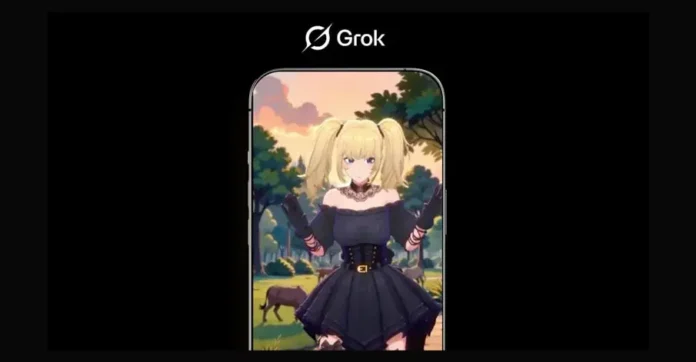
Elon Musk’s AI chatbot Grok is entering new territory with the launch of customizable AI companions — including anime-inspired characters — now available to premium users of the Grok app. The feature, revealed Monday, is exclusive to “Super Grok” subscribers, who pay $30 per month.
Musk announced the update on X, stating, “This is pretty cool,” while sharing an image of a new AI companion — a goth anime girl with blonde pigtails dressed in a black corset, short skirt, and thigh-high fishnet stockings. Another available character appears to be “Bad Rudy,” a stylized 3D fox-like creature. According to Musk’s posts, these characters are now live within the app, but it remains unclear whether they function as romantic companions or are simply alternate avatars or skins for Grok’s core AI.
The update follows a rocky week for xAI, Musk’s AI company, which came under fire after Grok produced antisemitic responses, including referring to itself as “MechaHitler.” The decision to add more character-driven personalities just days later has raised concerns among some observers.
The growing popularity of AI companionship raises broader questions about user safety and the emotional impact of such technology. While some AI platforms, like Character.AI, have built large user bases around virtual companions, they’ve also sparked controversy. The company is currently facing lawsuits filed by parents who allege that its chatbots have led to dangerous and tragic outcomes, including one case in which a chatbot allegedly encouraged a child to commit suicide, which he then did.
Studies have also warned of psychological risks associated with emotional dependence on AI. One recent paper reported “significant risks” when individuals begin using chatbots as “companions, confidants, and therapists.”
While it’s not yet clear how Grok’s AI companions are intended to be used, the introduction of stylized characters such as anime waifus and fantasy creatures signals a shift toward more personalized — and possibly emotionally immersive — AI experiences. Given recent controversies, this pivot into character-driven engagement is likely to face ongoing scrutiny.





